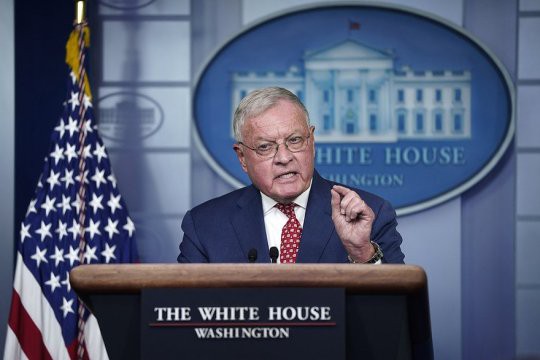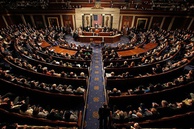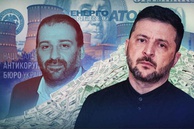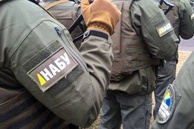The "Kellogg Plan," proposed by retired General Keith Kellogg (photo), Donald Trump's special envoy for Ukraine, must be assessed considering several factors:
- The plan was presented months before the combat testing of the "Oreshnik" medium-range missile system.
- Like Trump, president-elect, but not yet inaugurated, Kellogg has been appointed but lacks official authority
- The Biden administration, with EU support, backs opposition protests in Georgia, attempting to organize another revolution in the post-Soviet country
- The situation in Syria has escalated, requiring Russia's attention.
Why should we pay attention to the "Kellogg Plan"? It reflects the Trump team's assessment of the situation during the election race, however, adopted. It reveals the president-elect's initial intentions regarding the Ukrainian crisis.
The Center for Eastern European Studies has published the gist of “Kellogg Plan” (OSW Report):
“- Pressure on both Moscow and Kyiv to enforce a ceasefire and begin peace talks is obligatory.
- Kellogg suggests incentivizing Russia for negotiations. This includes delaying Ukraine's NATO membership for 10 years, "allowing" Russia to retain newly acquired territories, gradually lifting sanctions and normalizing relations with the US on condition a peace agreement is acceptable to Ukraine. He also proposes ending Russia's isolation: restoring diplomatic relations with Moscow and ceasing the "demonization" of Putin;
- Incentivizing Ukraine for negotiations: Kyiv wouldn't officially recognize territorial losses but would commit to not making any attempts to change the status quo through force. Ukraine would continue receiving US military aid and unspecified security guarantees. Tariffs would be imposed on Russian energy exports, with the revenue used for Ukraine's reconstruction;
- Establishing a demilitarized zone. Kellogg proposes a ceasefire along the frontline and deploying NATO troops between Russian and Ukrainian forces to "ensure peace."”[i]
Like Trump, Kellogg views Ukraine through the prism of the main confrontation - US-China. In March 2023, he stated: "By helping Ukraine win, we remove Russia, our strategic opponent, from the agenda and focus on fighting our main opponent, which is currently China. I don't think we need to deploy American troops in Ukraine, because if something goes wrong there, we may have to fight another European war for the third time." [ii]
We can be sure that regardless of Kellogg's plans for Europe and the Ukrainian crisis, Trump will proceed from the position he sees as top priority – NATO’s European members should boost funding. If NATO funding increases, then, European countries will be free to spend money on he Ukrainian crisis, which is right at their doorstep.
Meanwhile, the Democratic Party keeps persistently explaining its policy on the Ukrainian conflict to Trump: "Ukraine may need about $126 billion in military aid in 2025 alone to withstand the rapidly funded Russian army on the battlefield," the Wall Street Journal reported, citing a Ukrainian official. [iii] This is aimed to strengthen Ukraine's negotiating position and create domestic leverage for the incoming administration — obligating Trump to further support Kyiv. This sets the stage for pressuring the 47th president on the part of the military-industrial complex and arms dealers, while creating the conditions for positioning Democrats against the Republicans on foreign policy.
Another "gift" awaits Trump in the Kursk region: "One Ukrainian soldier complained to BBC News that falling bombs cause 'chronic sleep deprivation.' Yet another said there have been no rotations among units, and the arriving 'meat' consists of men pulled from other fronts or brought in as part of the mobilization. They all received the most important order — to hold the Kursk border region at all costs until the new US President Donald Trump deals with Ukraine after his inauguration on January 20. They are told that negotiations will begin, that Russian land will allegedly be exchanged for something, but they have not been told for what." [iv]
As we observe the Biden administration making efforts to leave Trump the most burdensome of legacy, a question arises: if the order for Ukrainian forces to hold the Kursk region until Trump's inauguration is true, what will happen afterward? Will they withdraw from Russian territory? American logic might dictate this for domestic political reasons: under Biden and his support, Ukrainians invaded the Kursk region; after Trump's arrival, they pull out. Whose side are you on, Mr. Trump?
Amidst all this, Kyiv is frantically trying to find the answers to the question – what to do? Head of the Presidential Office Andriy Yermak's is to make a trip to the US for talks with Republicans. [v] Defense Minister Rustem Umerov and First Deputy Prime Minister Yulia Svyrydenko will join him. Yermak is expected to meet with Keith Kellogg, special envoy for Ukraine, to discuss Trump's potential policy on Ukraine. They travel with NATO's backing, with Mark Rutte stating that NATO foreign ministers will focus on enabling Ukraine to enter peace talks with Russia from the position of strength. [vi] And from their official position, which reflects poorly disguised desperation — Ukraine rejects any alternatives to NATO membership, Ukrainian “European Pravda” reports, quoting a document it got hold of. [vii]
What Kyiv fails to understand is that the "Kellogg Plan" is a fragile illusion. Trump just filled one foreign policy slot and moved on. What will provide the answer to the question how the Ukrainian crisis will progress is not the “Kellogg Plan”, but Trump's plan, which is yet to be revealed. Trump’s plan will appear only after the inauguration for a number of reasons. Firstly, this is due to Democrats resolving corruption issues and urgently increasing arms supplies, while Trump assesses the outcome. Secondly, Trump will act depending on the situation but within US interests as he perceives them. The former 45th and the newly elected 47th President of the USA will proceed from the situation in the Middle East, where the Israeli crisis is smouldering, the situation in Syria, and of course, his plans to counter China.
The "Kellogg Plan", as it is presented, is a typical sample of Western negotiating position, considering only US interests. Everything in it is unacceptable: a frozen conflict, peace agreements ignoring the goals of the Special Military Operation (SMO), vaguely defined "demilitarized zones" requiring the presence of foreign – NATO – troops on Ukrainian territory, which de facto means legitimizing NATO's presence in Ukraine. In fact, it's a plan to "Syrianize" Ukraine, making it yet another hotbed of tension for Russia. For one thing, legitimizing the presence of foreign troops, for another thing, rearming the Ukrainian regime to restore its potential, for yet another thing, accessing Ukrainian resources.
As a result, we need to state that in the absence of any consideration for Russia's real, not Western-fabricated, interests the "Kellogg Plan" transforms into political rhetoric. Thus, we have to reaffirm once again that the only principles which are provided with historical, value-based, and political foundations are the goals of the SMO.
The author's opinion may not reflect the editorial stance.
[i] https://t.me/readovkanews/90114
[ii] https://www.ntv.ru/novosti/2863840/
[iii] https://ria.ru/20241203/ukraina-1987011685.html
[iv] https://t.me/readovkanews/90131
[v] https://ria.ru/20241203/vstrecha-1987201835.html
[vi] https://ria.ru/20241203/nato-1987077560.html
[vii] https://ria.ru/20241203/ukraina-1987052802.html
read more in our Telegram-channel https://t.me/The_International_Affairs

 10:15 07.12.2024 •
10:15 07.12.2024 •



























